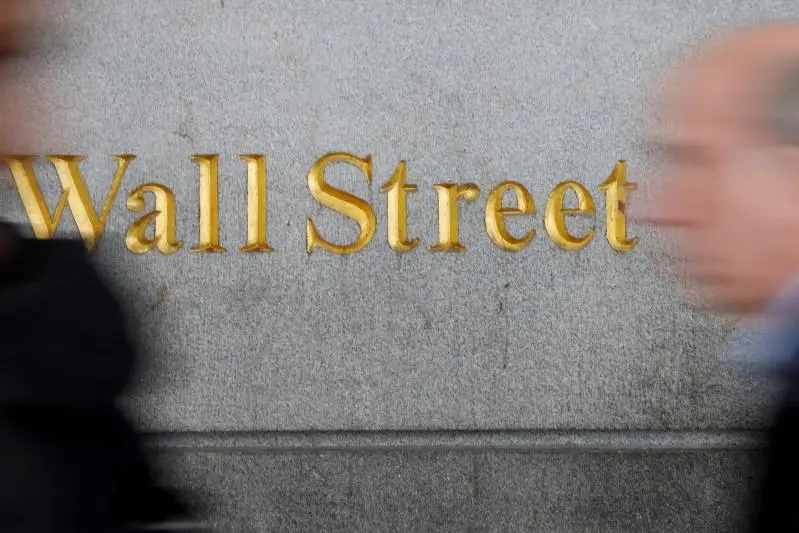PHOTO
- Wall Street posts Friday gains as earnings season begins
- Oil closes higher on supply disruption
- Dubai declines, but most Middle East markets end week largely flat
- Sterling climbs as threat of 'no deal' Brexit weakens
Global markets
Most global markets finished in positive territory on Friday as earnings season got off to a flying start as the United States (U.S.) banking giant JP Morgan Chase reported record first quarter earnings.
The bank reported a 5 percent increase in net income to almost $9.2 billion, with chairman and CEO Jamie Dimon stating in the bank's results announcement that, "Even amid some global geopolitical uncertainty, the U.S. economy continues to grow, employment and wages are going up, inflation is moderate, financial markets are healthy and consumer and business confidence remains strong”.
The bank's share price rose 4.7 percent on the back of the results, and helped to push U.S. stock market indices higher. The S&P500 closed 0.66 percent higher, the Dow Jones Industrial Average climbed by 1.03 percent, and the Nasdaq Composite Index was up 0.46 percent.
David Carter, chief investment officer for New York-based Lenox Wealth Advisors, told Reuters that JP Morgan's results were important because the bank's operations "touches on a wide portion of the economy".
“It’s a bellwether for other corporate earnings,” he said.
The gains made in U.S markets were reflected elsewhere around the world. The FTSE 100 index in the United Kingdom gained 0.26 percent as mining shares rallied on the back of economic data from China showing stronger exports, although the Shanghai Composite index was one of the few Asian markets finishing in the red on Friday, declining marginally by 0.04 percent.
"Although China’s exports rebounded in March, rising over 14.0 percent year-on-year, imports disappointed by shrinking 7.6 percent - marking a fourth consecutive month of decline," Lukman Otunuga, a research analyst at FXTM explained in a note sent to media.
Commodities
Brent Crude futures finished 1 percent higher on Friday at 71.55 per barrel, according to Eikon data, while West Texas Intermediate futures closed 0.5 percent higher at $63.89. Oil prices rallied at the end of last week on the back of supply disruption in Venezuela, Iran and as a result of conflict in Libya.
Prices have increased by more than 30 percent since the start of the year on the back of sanctions imposed on Venezuela and Iran, as well as the Libyan conflict and the cuts agreed by producers from OPEC and partners from Russia, with RBC Capital Partners stating in a note on Friday that "Geopolitically infused rallies could shoot prices toward or even past the $80 per barrel mark for intermittent periods this summer,” according to Reuters.
However, there are also signs that the pact between OPEC and other major producers (most notably Russia) on production cuts that has held for more than two years may unravel, with Russia’s Finance Minister Anton Siluanov quoted by the state's TASS news agency on Saturday stating that it faces a 'dilemma' over whether to maintain current production cuts to support prices and lose market share to shale producers in the U.S., or abandon them and force prices lower.
Middle East markets
Trading in shares on Gulf stock markets finished largely flat on Thursday. The Saudi Arabian market edged up 0.11 percent, continuing a rally which has seen the index gain in value by 3.04 percent since the start of the month, and by 16.11 percent since the beginning of the year.
The Dubai Financial Market index closed the day 0.6 percent lower, ending 10 consecutive days of gains, as a number of bank shares posted losses. Mashreq Bank, which last week said it planned to close 12 branches as part of its plans to digitise services, saw its shares drop 6.75 percent, while shares in Dubai;s largesst lender, Emirates NBD, closed 1.67 percent lower. Oman's MSM 30 index, the Qatar Share Exchange and Boursa Kuwait's Premier market closed 0.3 percent, 0.2 percent and 0.15 percent higher, respectively. The Bahrain Bourse closed 0.28 percent lower, though, and the Abu Dhabi Securities Index closed down 0.11 percent.
Currencies
Both the euro and the British pound closed higher against the U.S. dollar after the European Union and Britain agreed a six-month extension to Britain's withdrawal from the European Union, assuaging market fears that it would crash out of the Union without a trade deal. The pound closed up 0.51 percent against the U.S. dollar at $1,312, while the euro gained both as a result of the delay and on the back of better-than-anticipated Eurozone manufacturing data. The euro closed at $1.1317 against the dollar, up 0.6 percent.
Shaun Osborne, chief FX strategist at Canada's Scotiabank said in a note that the euro has "looked quite 'cheap' in broader terms in recent weeks and still looks – in our opinion – a relative bargain around the 1.12 area".
Precious metals
The brighter news for global financial markets spelled bad news for gold, which finished Friday's session 0.18 percent lower in spot markets, after a big decline in trading on Thursday, when the yellow metal fell by 1 percent.
Gold futures closed the week 0.15 percent higher, according to Eikon data.
(Writing by Michael Fahy; Editing by Mily Chakrabarty)
Our Standards: The Thomson Reuters Trust Principles
Disclaimer: This article is provided for informational purposes only. The content does not provide tax, legal or investment advice or opinion regarding the suitability, value or profitability of any particular security, portfolio or investment strategy. Read our full disclaimer policy here.
© ZAWYA 2019





















